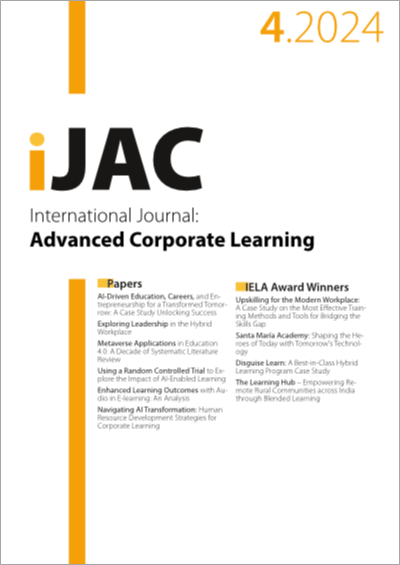The Learning Hub – Empowering Remote Rural Communities across India through Blended Learning
DOI:
https://doi.org/10.3991/ijac.v17i4.51251Keywords:
Blended Learning, Rural Development, Human-Centred Design, Aga Khan Foundation, Aga Khan Rural Support Programme India, Water Access, Regenerative Farming, Rural Governance, Community Resilience, Women’s Empowerment, India, The Learning HubAbstract
This case study explores The Learning Hub, an initiative of the Aga Khan Foundation (AKF), which hosts, among many other learning assets, a three-strand learning programme to enhance the quality of life in rural India through innovative blended learning strategies. The programme, delivered by the Aga Khan Rural Support Programme India (AKRSPI), addresses critical issues such as water sanitation, sustainable agriculture, and governance by delivering courses through a combination of video-based online content and in-person facilitation. The study provides a brief analysis of AKF's blended learning approach, and its impact on community resilience, economic development, and social equity.
Downloads
Published
How to Cite
Issue
Section
License
Copyright (c) 2024 Aarsh Mehta, Ana Barfield, Mark Thomson

This work is licensed under a Creative Commons Attribution 4.0 International License.



